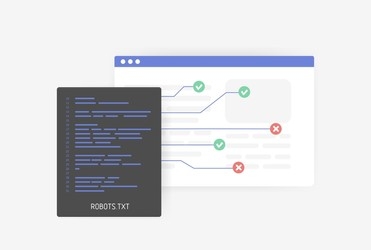Learn everything you need to know about crawl budget for SEO. Using these tips, you can optimize your website’s crawl budget and ensure that search engine crawlers can access and index all of your important pages. Improve the structure of your website, fix crawl errors, reduce duplicate content, use robots.txt, and boost server performance. Continue reading to learn about the significance of crawl budget for your website’s visibility and traffic.
What is Crawl Budget?
The number of pages on your website that search engine crawlers can crawl and index in a given time frame is referred to as the crawl budget. Google and other search engines use complex algorithms to determine how much time and resources to devote to your website. Several factors influence crawl budget, including website structure, server performance, and the number of pages on your website.
Why is Crawl Budget Important?
Crawl budget is important for SEO because it determines how many pages of your website will be indexed by search engines. If search engine crawlers are unable to access all of your website’s pages, they will be unable to index and rank them in search results. As a result, your website’s visibility and traffic may suffer.
How to Optimize Crawl Budget?
Here are some tips to optimize your website’s crawl budget:
1. Improve website structure
A well-organized website structure can aid search engine crawlers in better understanding your website’s content. This can result in more efficient and faster crawling of your website. Make sure your website has a distinct hierarchy and internal linking structure.
2. Fix crawl errors
Crawl errors can prevent search engine crawlers from accessing the pages of your website. Use a tool like Google Search Console to detect crawl errors and fix them as soon as possible.
3. Reduce duplicate content
Duplicate content can cause search engine crawlers to become confused and waste your crawl budget. To indicate the preferred version of a page, use canonical tags and redirect duplicate URLs to the preferred version.
4. Use robots.txt
Robots.txt is a file that instructs search engine crawlers on which pages to crawl and which to ignore on your website. Use robots.txt to exclude irrelevant pages while conserving crawl budget for important pages.
5. Improve server performance
Slow servers can cause search engine crawlers to time out and abandon your website before crawling all of its pages. Make sure your website’s server is fast and dependable.
Crawl Budget vs. Crawl Rate
Crawl budget and crawl rate are frequently confused, but they are two distinct concepts. Crawl budget refers to the number of pages crawled and indexed by search engine crawlers in a given time frame. Crawl rate, on the other hand, refers to how often search engine crawlers visit your website.
Conclusion
Crawl budget is an important consideration in search engine optimization. You can ensure that search engine crawlers can access and index all of your website’s pages by optimizing your crawl budget. Remember to optimize your crawl budget by improving your website structure, fixing crawl errors, reducing duplicate content, using robots.txt, and improving server performance.
FAQs
- What is the ideal crawl budget for a website?
There is no such thing as an ideal crawl budget for a website because it is determined by several factors such as website size, server performance, and crawl rate. - How often do search engines crawl websites?
Search engines crawl websites at varying rates based on their popularity, content freshness, and crawl budget. - Does crawl budget affect SEO?
Yes, crawl budget has an impact on SEO because it determines how many of your website’s pages are indexed and ranked in search results. - How can I monitor my website’s crawl budget?
To track your website’s crawl budget, use tools like Google Search Console and third-party SEO tools. - Can I increase my website’s crawl budget?
Yes, by optimizing your website’s structure, fixing crawl errors, reducing duplicate content, using robots.txt, and improving server performance, you can increase your crawl budget. - Can crawl budget affect website speed?
No, crawl budget has no direct impact on website speed. However, if search engine crawlers consume a significant portion of your website’s server resources, it may cause your website to slow down. - How can I check my website’s crawl rate?
Under the crawl stats section of Google Search Console, you can view your website’s crawl rate. - Can crawl budget vary over time?
Yes, crawl budgets can change over time due to factors such as changes to your website’s structure, content, and server performance. - Does crawl budget differ for mobile and desktop versions of a website?
Yes, crawl budgets for mobile and desktop versions of a website may differ due to differences in website structure and user experience. - Is crawl budget the same for all search engines?
No, because different search engines use different algorithms to determine how much time and resources to allocate to a website, crawl budgets may differ.
As a London-based Technical SEO Strategist, I've worked with top firms like BT.com, EE.co.uk, Tripadvisor, Yopa, and various digital marketing and cloud computing companies. My extensive experience in SEO, including outreach, helps me create impactful strategies informed by the latest industry trends, ensuring innovative solutions for diverse industry needs.

